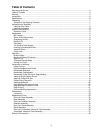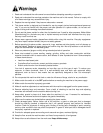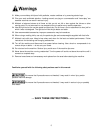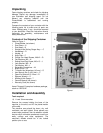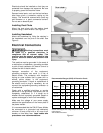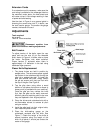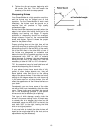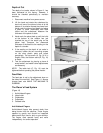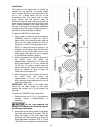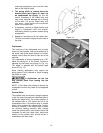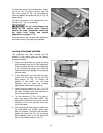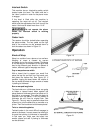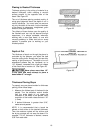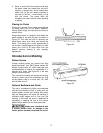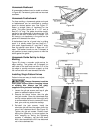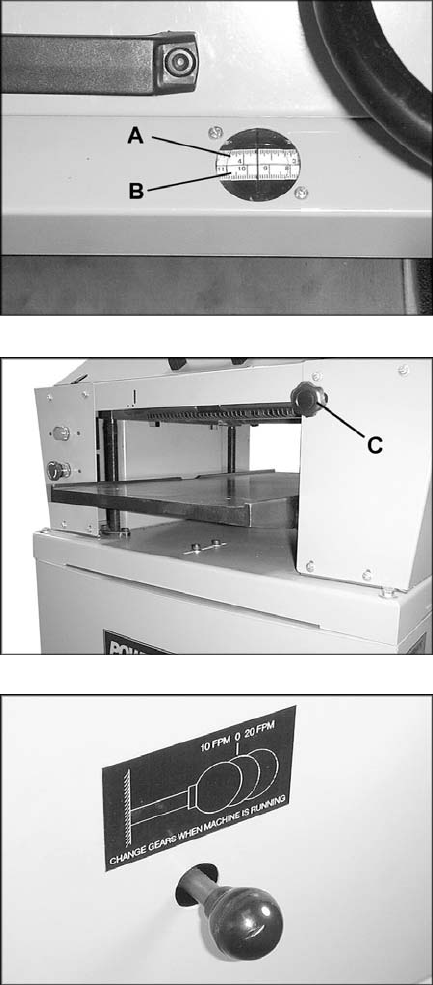
11
Depth of Cut
The depth of cut scale, shown in Figure 9 , has
been calibrated at the factory. However, it
should be checked periodically to maintain
accuracy:
1. Disconnect machine from power source.
2. Lift the hood and rotate the cutterhead by
hand until one of the planer knives is at the
bottom of its rotation nearest the planer bed.
Hand crank the planer bed down and place
a piece of stock underneath both feed
rollers and the cutterhead. Measure the
thickness of the piece of stock.
3. Hand crank the planer bed up until the knife
at the bottom of the rotation has just
touched the top of the stock lying on the
planer bed. Compare the measured
thickness of the board to the reading on the
depth of cut scale.
4. If the reading on the depth of cut scale is
incorrect, loosen the two mounting screws
on the clear plastic plate and adjust
accordingly. The top scale (A, Fig. 9) is in
English units, the bottom scale (B, Fig. 10)
is metric.
5. Test the adjustment by planing a piece of
scrap lumber, and make further adjustments
as necessary.
NOTE: The table lock (C, Fig. 10) must be
tightened before operating the planer/molder.
Feed Rate
The feed rate is set by the adjustment lever on
the side of the machine. See Figure 11. Always
change feed rate WHILE THE MACHINE IS
RUNNING.
The Planer’s Feed System
(Figure 12)
1. Anti-kickback fingers
2. Infeed roller
3. Chipbreaker
4. Cutterhead
5. Outfeed roller
Anti-Kickback Fingers
Anti-kickback fingers help prevent stock from
being thrown from the machine. These fingers
operate by gravity and should be inspected
before each day's use for pitch or gum buildup.
The fingers must operate freely and move
independently for correct operation.
Figure 9
Figure 10
Figure 11



